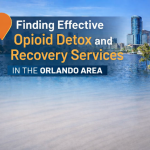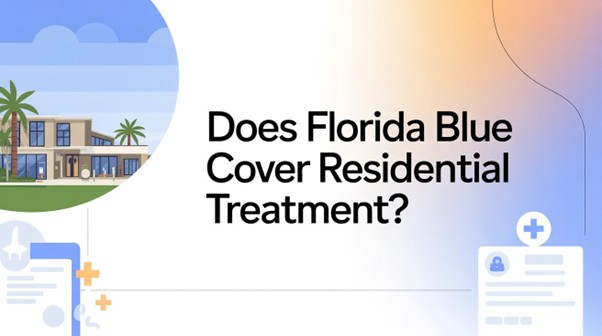Another mental health and substance use disorder, which is the most common, but widely misunderstood, is the Alcohol Use Disorder (AUD). It has an impact on millions of people all over the world not only on physical state of people but on relationships and emotional state. Education concerning the alcohol use disorder, early identification of the symptoms, and treatment of alcohol use disorder may change lives.
In Solutions Healthcare, we address evidence-based treatment to alcohol use disorder individuals in a humane and caring way. We aim to help every patient to recover and live a long and healthy life.
What is Alcohol Use Disorder?
Alcohol Use Disorder AUD is a chronic illness, the inability to cope or stop drinking regardless of the adverse health consequences. It is often referred to as alcohol substance use disorder as it not only attacks the brain, but the body too leading to physical dependence and psychological craving.
DSM-5 has 11 criteria of alcohol use disorder, including tolerance, withdrawal, and persistent drinking despite the problem. Depending on the number of criteria that are met, there are mild, moderate or severe disorders.
AUD is a gradual disorder that may begin as a social drinking that leads to addiction. Early recognition is the only measure that effective intervention and recovery can be accomplished.
What are the Symptoms of Alcohol Use Disorder?
One needs to determine the symptoms of an alcohol use disorder to receive the necessary help promptly. Depending on the severity, most of the symptoms will have a behavioral and physical form.
Common symptoms of alcohol use disorder include:
- Drinking alcohol more or unintentionally.
- Efforts to suppress or quit alcohol consumption which were futile.
- Spending time getting drunk and recovering after abusing alcohol.
- Want or have a strong want to drink alcohol.
- Absence of showing up at work, school or home.
- Drinking despite relationship or health issues.
- Renunciation of activities or hobbies due to alcohol.
- Binge drinking (e.g., when driving)
- Developing tolerance -A greater amount of alcohol is required to experience the effects
- The withdrawal symptoms or the feeling of being shaken, sweating or anxious when the person is not drinking.
When you or a loved one can relate to many of these symptoms, it is possible to say that it could be a mild to severe alcohol use disorder that should be treated by a specialist.
100% Confidential Support is Available 24/7
No matter what you’re going through, you’re not alone. Our dedicated team is here to provide a safe, judgment-free space where you can talk openly and honestly. Whether you need emotional support, resources, or just someone to listen.
We’re here for you—completely confidential and always respectful of your privacy. Call us today!
What Causes Alcohol Use Disorder?
No single cause of AUD exists it is usually a combination of biological, psychological and environmental factors.
Genetic Factors:
Studies indicate that genetics is a major determinant of elevated risk development by an individual towards AUD. Some may be more prone to alcoholism since their family history reveals it.
Mental Health Disorders:
Self-medication using alcohol which leads to dependency, can also be promoted by other disorders like anxiety, depression, or disorders caused by trauma.
Environmental Influences:
Risk can be supplemented by influencing peers by creating conditions in the social environment that encourage excessive drinking of alcohol and early alcohol exposure.
Stress and Coping Mechanisms:
The cause may also be poor skills in coping or high stress situations in alcohol misuse as an escapist measure.
The capacity to get informed about the underlying causes will help professionals to develop an effective and responsive plan of treatment of alcohol use disorder.

Contact Solutions Healthcare
Battling with Drug and Alcohol Addition? Remember, you are not alone and we are here to help you!
What Are the Complications of This Condition?
Alcohol use disorder may cause extreme physical, emotional, and social problems when it is untreated.
Physical Health Complications:
- Hepatitis, cirrhosis.
- High blood pressure (heart attacks, abnormal heartbeats)
- Brain damage and memory loss
- Immune system suppression
- Increased risk of cancer
Psychological and Social Consequences:
- Depression and anxiety
- Family disputes and relationship failures.
- Monetary and legal issues.
- Job loss or poor performance
The fact that one is aware of such complications underlines the need to make sure that the condition is managed before it progresses.
What are the Treatments for Alcohol Use Disorder?
The most effective form of therapy in treating alcohol use disorder is physical therapy of the addiction as well as treating the emotional component. Solutions Healthcare offers different evidence-based approaches to treatment and they are anchored on individual recovery.
Medical Detoxification:
The withdrawal symptoms are also addressed through detox which is a safe way to cope with the withdrawal symptoms under medical supervision. This normally is the first step towards recovery.
Behavioral Therapy:
Cognitive Behavioral Therapy (CBT), Motivational Enhancement Therapy (MET), and other strategies can help the patients to change their way of thinking and alcohol drinking habits.
Medication-Assisted Treatment (MAT):
The use of anticraving medications like naltrexone, acamprosate and disulfiram are used to decrease craving and prevent the occurrence of relapses.
Individual and Group Counseling:
Counseling provides emotional support and teaches the skills of coping. Group therapy will provide the patient with an opportunity to learn about other people who have undergone the same process.
Aftercare and Relapse Prevention:
The recovery should be pursued in the long run. Some of the aftercare programs that ensure sobriety are sober living and support groups.
Care at Solutions Healthcare
We also know that recovery is a process that is continuous and individual at Solutions Healthcare. The treatment programs of alcohol use disorder are unique to every patient.
We offer:
- Detailed evaluations and elaborate therapy.
- Dual diagnosis and medical detoxification.
- Professional therapy sessions are licensed.
- Family support programs
- Comprehensive and preventive treatments.
Our non-judgmental staff ensure a good environment conducive to recovery to enable people restore their well-being and self-esteem. Call Solutions Healthcare: (386) 866-3600 – the very first step towards your alcohol-free and healthier life.
100% Confidential Support is Available 24/7
No matter what you’re going through, you’re not alone. Our dedicated team is here to provide a safe, judgment-free space where you can talk openly and honestly. Whether you need emotional support, resources, or just someone to listen.
We’re here for you—completely confidential and always respectful of your privacy. Call us today!
Frequently Asked Questions (FAQs)
1. How do you treat alcoholic patients?
The therapy consists of medical detox, counseling, behavioral therapies, and medication-assisted treatment. Aftercare programs and support groups also ensure that there is a sustaining recovery.
2. What is an alcohol use disorder?
It is a long term illness that is accompanied by the inability to regulate alcohol consumption despite adverse effects. Depending on DSM-5 alcohol use disorder, it may be mild to severe.
3. What are 5 symptoms of alcohol use disorder?
There are five typical symptoms and these are strong cravings, loss of control to drink, failure to perform their duties, alcohol tolerance, and withdrawal symptoms.
4. What are four types of treatment for an alcohol use disorder?
The primary types of treatment are detoxification, behavioral therapy, medication assisted therapy and continued aftercare treatment.
5. How is alcohol use disorder diagnosed?
Medical and psychological assessment including the DSM-5 criteria are used to diagnose it. A medical professional can also evaluate drinking pattern, health consequences and societal influence.






















